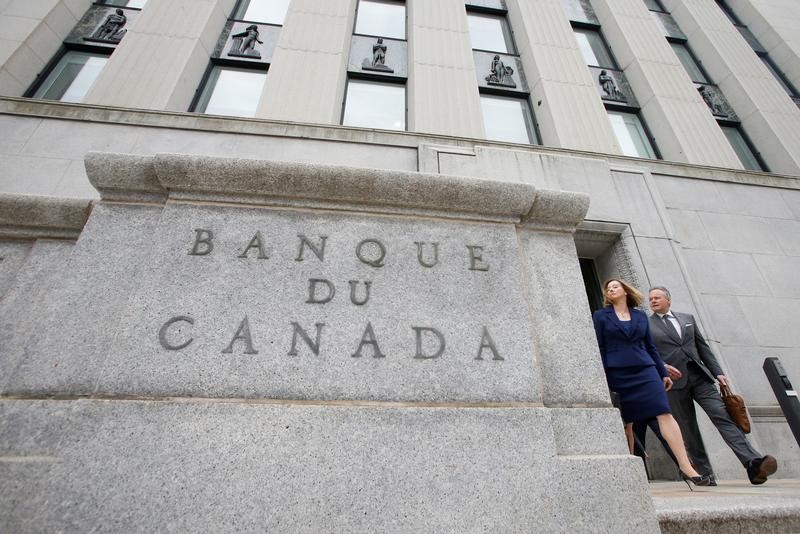(Updates death toll)
By Kelsey Johnson and David Ljunggren
OTTAWA, April 15 (Reuters) - The Bank of Canada on Wednesday said the coronavirus outbreak was set to trigger the biggest ever near-term domestic slump, but expressed optimism the economy might be able to start reopening by June as the death toll from the disease in the country topped 1,000.
Officials across Canada have ordered people to stay home and closed non-essential businesses to help stop the spread of the virus, throwing millions out of work.
In its quarterly monetary policy report, the bank outlined two scenarios under which real gross domestic product (GDP) would shrink. It estimated real GDP would fall by 1% to 3% in the first quarter and would contract by 15% to 30% in the second quarter, both compared with the fourth quarter of 2019.
"I'm reasonably optimistic that the positive scenario ... is still achievable," said Bank of Canada Governor Stephen Poloz.
This would involve starting to lift restrictive measures in late May or early June "and then you get the economy gradually picking up traction," he told reporters.
Prime Minister Justin Trudeau told a separate briefing it would be "weeks more" before the restrictions could be loosened.
Confirmed coronavirus cases in Canada have reached 28,362, with 1,010 deaths, according to the latest government data.
Chief public health officer Theresa Tam told a briefing there was "some cause for cautious optimism" since data suggested the epidemic was slowing down.
INTEREST RATES HELD STEADY
Canada's central bank on Wednesday held interest rates steady at 0.25% as expected, added provincial and corporate bonds to its quantitative easing program, and suspended its economic forecasts given the highly uncertain outlook.
"The Canadian economy is experiencing a significant and rapid contraction," Poloz said in remarks to reporters.
Poloz later told CTV News it would be "misleading" to compare the crisis to other economic slumps.
"We're stopping the clock ... and then we're going to restart the clock," he said. "That is not comparable to any recession I've experienced and certainly not a depression."
Canada's economy shrank a record 9% in March from February Statistics Canada said in a flash forecast. overall inflation rate is expected to dive to around 0% in the second quarter of 2020, largely due to a sharp drop in gas prices, the central bank said.
The outbreak, it said, was having "significant and negative" effects on total supply and demand in the near term.
The bank slashed its overnight interest rate by half a percentage point three separate times in March to 0.25%, which it calls the "lower bound" for rates. Canadian dollar CAD=D4 fluctuated around 1.4060 per U.S. dollar, or 71.12 U.S. cents, after the interest rate decision but later dropped close to its one-week low of 1.4120.
The Liberal government has so far announced direct spending measures worth more than C$110 billion to help businesses and individuals. Trudeau said Ottawa would expand emergency benefits to include low earners and out-of-work seasonal employees.
He also said he would discuss with the 10 provinces how Ottawa could support efforts to fight COVID-19 in long-term care homes, where more than half of the deaths have occurred.
